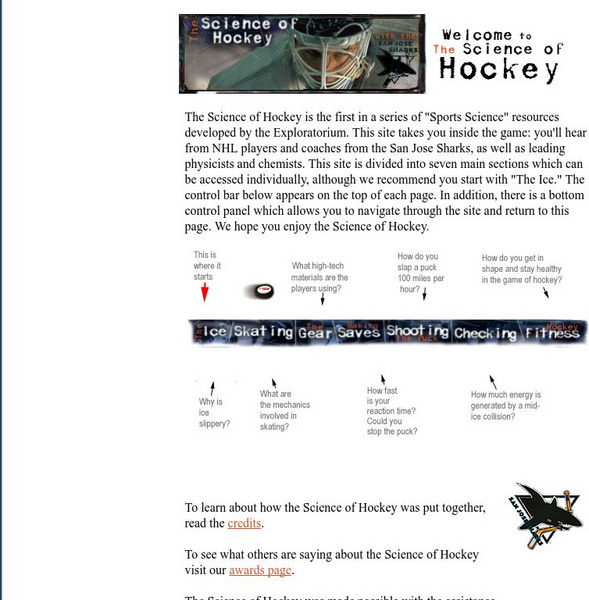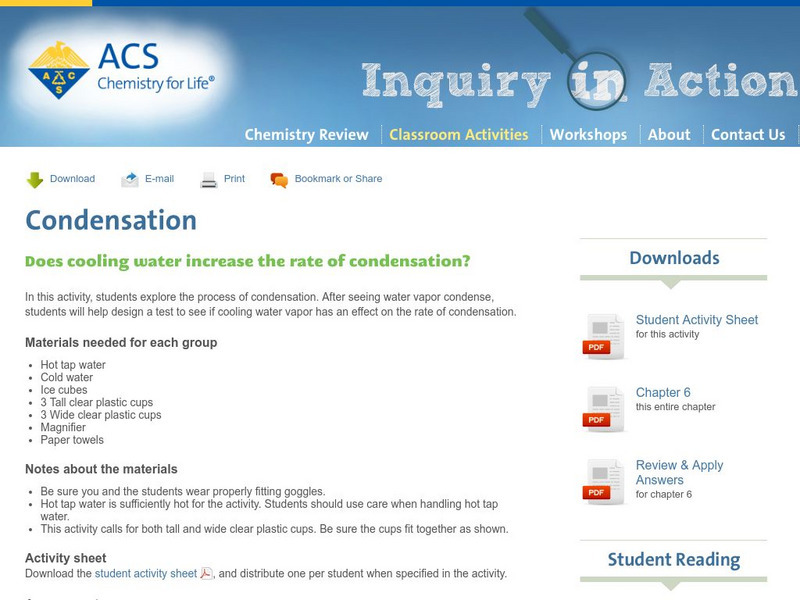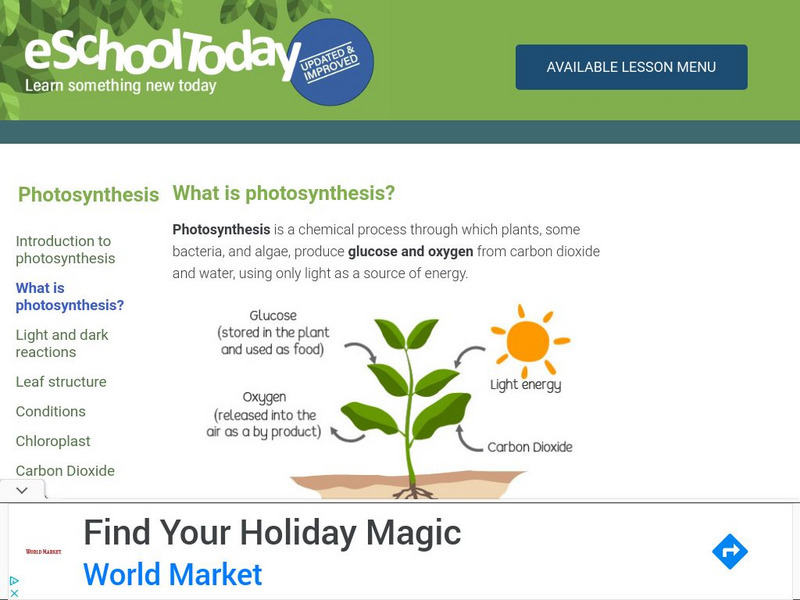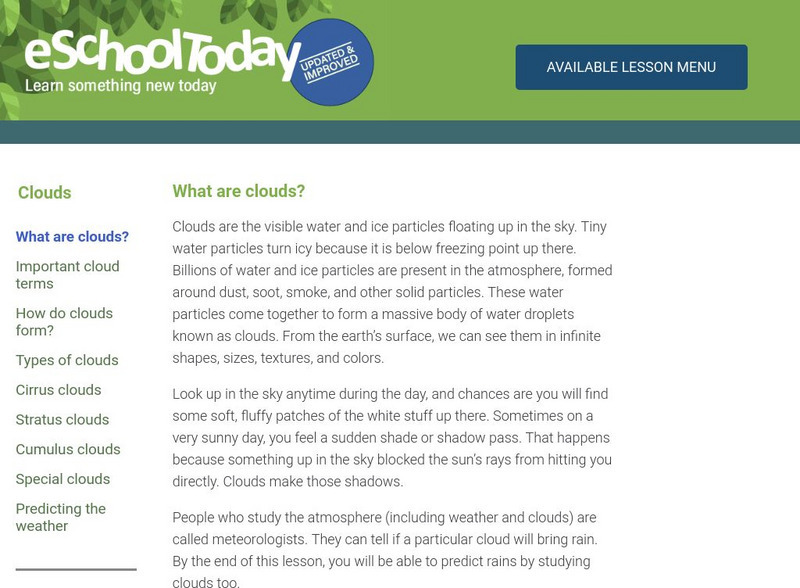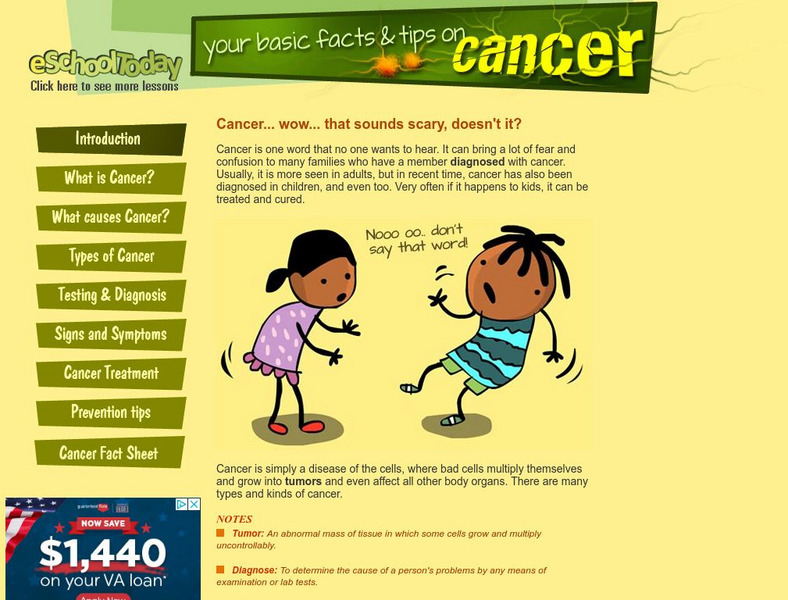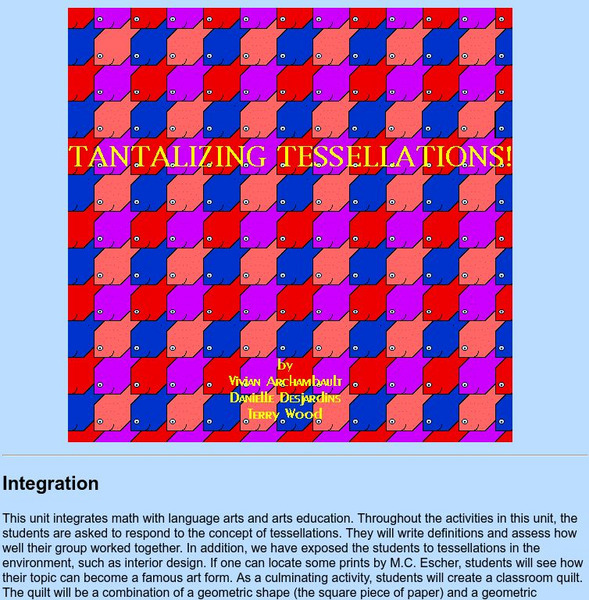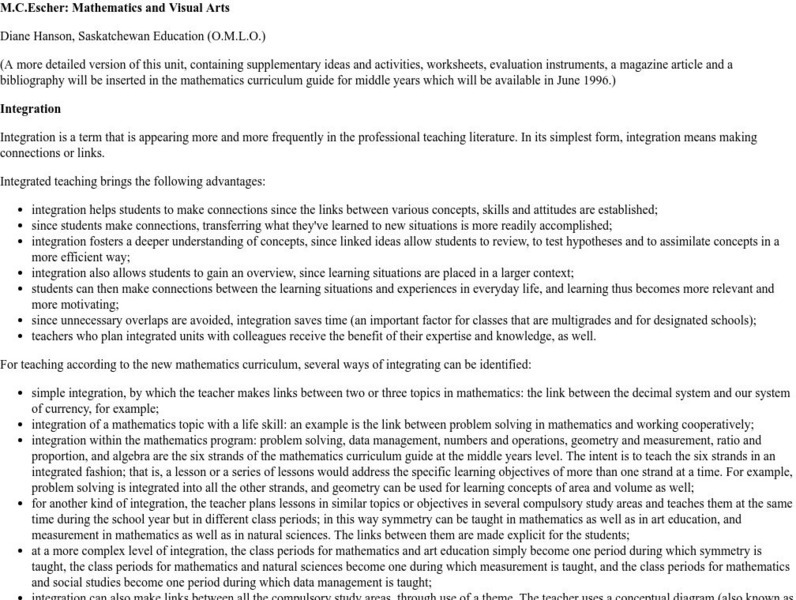Concord Consortium
Concord Consortium: Stem Resources: Earthquakes Around the World
In this interactive, students manipulate a computer model that shows where earthquakes and volcanic eruptions have occurred since 1960, to make predictions, collect data and look for patterns. Includes career connection, and a question...
Concord Consortium
Concord Consortium: Stem Resources: Greenhouse Light and Temperature
An interactive tool where students can create a model of a greenhouse and use a light sensor to measure the amount of light it receives from a lamp at various times of the day. Temperature is also measured. Data is plotted on graphs,...
Chem4kids
Chem4 Kids: Chemistry Careers
Chem4Kids! looks at careers available in the large field of chemistry. Here you can explore the career of a doctor, pharmacist or pharmacologist, university researcher, forensics expert, or hazardous materials expert.
Exploratorium
Exploratorium: The Science of Hockey
If you love hockey - or are just curious about hockey - you will really like this site. There is a lot of information about the components of hockey. You can learn what equipment is necessary, how slapshots are made, and how to skate...
Michigan State University
Michigan State University: Digital Learning Center for Microbial Ecology: Microbe Zoo: Ag Acres
A simple overview of the important roles microbes play in agriculture. You'll learn how some microbes can be hazardous to plants while others help fertilize and build soil, and kill insects.
National Endowment for the Humanities
Neh: Edsit Ement: I've Just Seen a Face Portraits Lesson Plan
This website contains a lesson plan in which learners attempt to analyze different types of portraits for better understanding. It contains 6 different lessons in which students look at examples of portraits of children, important...
American Chemical Society
Inquiry in Action: Condensation
In this activity, students explore the process of condensation. After seeing water vapor condense, students will help design a test to see if cooling water vapor has an effect on the rate of condensation.
American Chemical Society
Inquiry in Action: Exploring Moisture on the Outside of Cold Cup
In this activity, students investigate how condensation causes moisture to form on the outside of a cold cup. To see if the condensed water vapor comes from the air, students use 2 cold cups, but limit the air around one of them by...
American Chemical Society
Inquiry in Action: Explore Moisture on Outside of a Cold Cup (Dry Environment)
Regardless of the time of year or region of the country students live in, they have likely experienced moisture on the outside of a cold drink or another cold surface. In this activity, students will prepare a sample of humid air since...
American Chemical Society
Inquiry in Action: Defining Density
Do heavy things always sink and light things always float? In this introductory demonstration and activity, students are introduced to the concept of density as they explore a rock and a wooden block in water.
eSchool Today
E School Today: Energy
Explains different kinds of energy, covering kinetic, potential, gravitational, mechanical, sound, thermal, chemical, electrical, and radiant energy. Also looks at storage, transfer, and dissipation of energy. Includes a short...
eSchool Today
E School Today: Photosynthesis
Read about photosynthesis, what light and dark reactions are, the structure of a leaf, the conditions needed for photosynthesis to occur, where and how photosynthesis takes place, and how root structure impacts on photosynthesis.
eSchool Today
E School Today: Your Revision Notes on Clouds
Learn all about clouds, how they form, the different types, and how they can be used to predict the weather.
eSchool Today
E School Today: Your Cool Facts and Tips on Light Pollution
What is light pollution and why should we care about it? Learn what it is, the different types, sources of this type of pollution, the impact it has, and ways to combat it.
eSchool Today
E School Today: Your Basic Facts and Tips on Cancer
Explains how cancer develops and spreads, some causes of cancer, different types, how it is diagnosed, signs and symptoms of cancer, treatments, and tips for preventing it.
Birmingham Museums Trust (UK)
Birmingham Museum & Art Gallery: Investigate Real Egyptian Artifacts
A short list of artifacts dating back to Ancient Egypt with descriptions and images. Additionally, find links for activities, a timeline, and details of mummies to enhance study of the early civilization.
PBS
Pbs Learning Media: Waterslides
Join Valerie and Margie as they devise ways to measure how fast and how "wild" two water slides are in this video from DragonflyTV. [3:12]
PBS
Pbs Learning Media: Creepy Crawlies
This interactive feature from the NOVA: "Odyssey of Life" Web site explores the often unwitting relationship we share with the billions of "creepy crawlies" that reside in our bodies and in our homes.
PBS
Pbs Learning Media: Scent of an Alewife
This video segment from NOVA: "Sea Behind the Dunes" tracks the return of spawning alewife fish from the open ocean back to the freshwater streams and ponds where they were born. [3:34]
PBS
Pbs Learning Media: The Power of Touch
This video segment explores the role of touch in the development of young animals, including humans. Footage from NOVA: "Mystery of the Senses: Touch." [2:57]
PBS
Pbs Learning Media: Reading a Thermometer
In this video segment from Cyberchase, the CyberSquad learns how to read a thermometer as they try to keep their chocolate sculpture from melting.
University of Regina (Canada)
University of Regina: Math Central: Tantalizing Tessellations!
For this unit, students will be taught several techniques for creating tessellations and will respond to their learning in their Math journals.
University of Regina (Canada)
University of Regina: Math Central: m.c.escher: Mathematics and Visual Arts
This cross-curricular middle school unit integrates mathematics and visual art. Through the study of the M.C. Escher?s work, students explore tiling from both a mathematical and artistic point of view. Points for discussion and...
Shodor Education Foundation
Shodor Interactivate: Lesson: Fire!, Probability, and Chaos
Students will simulate the probability of a forest fire then graphing the data.





